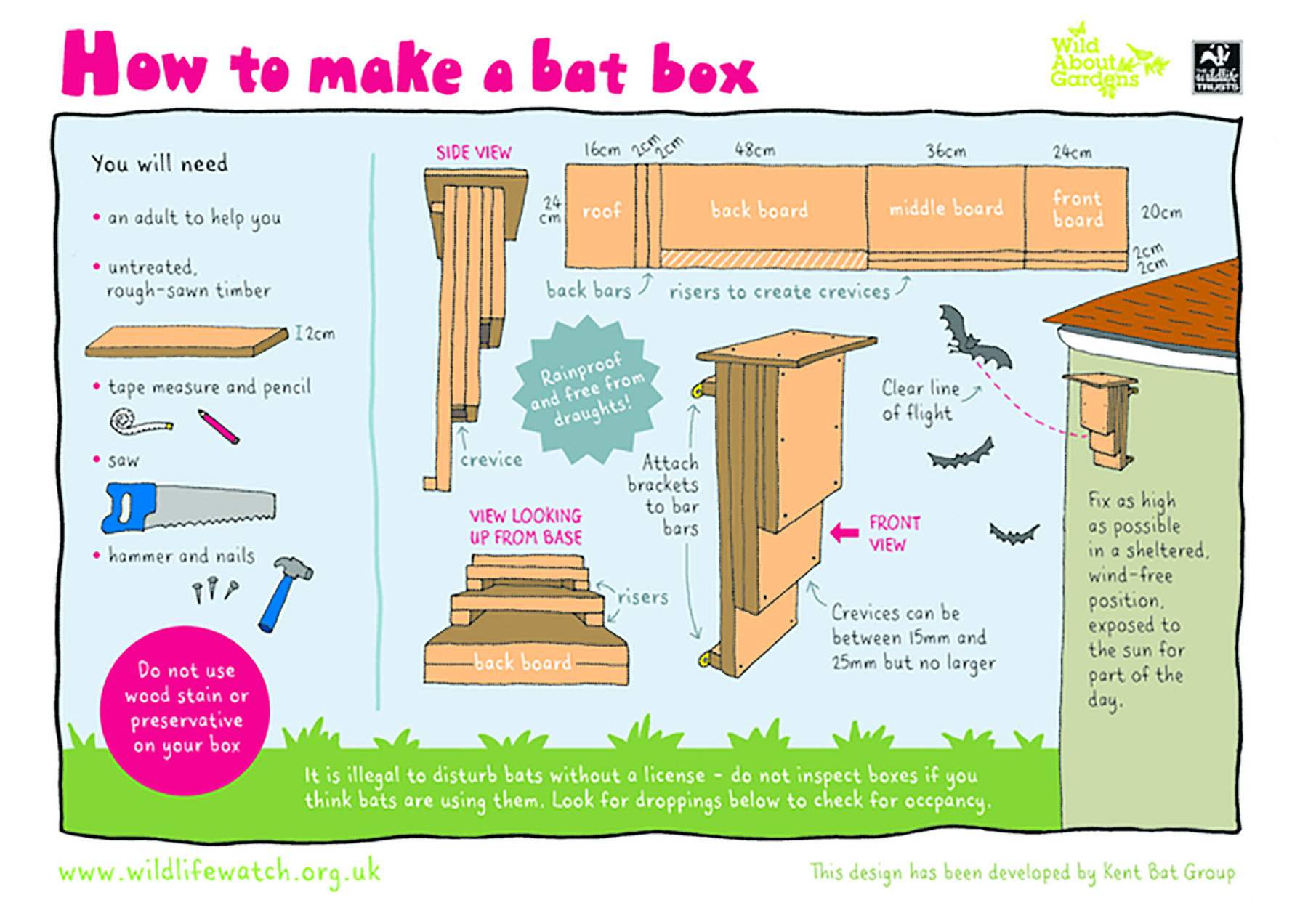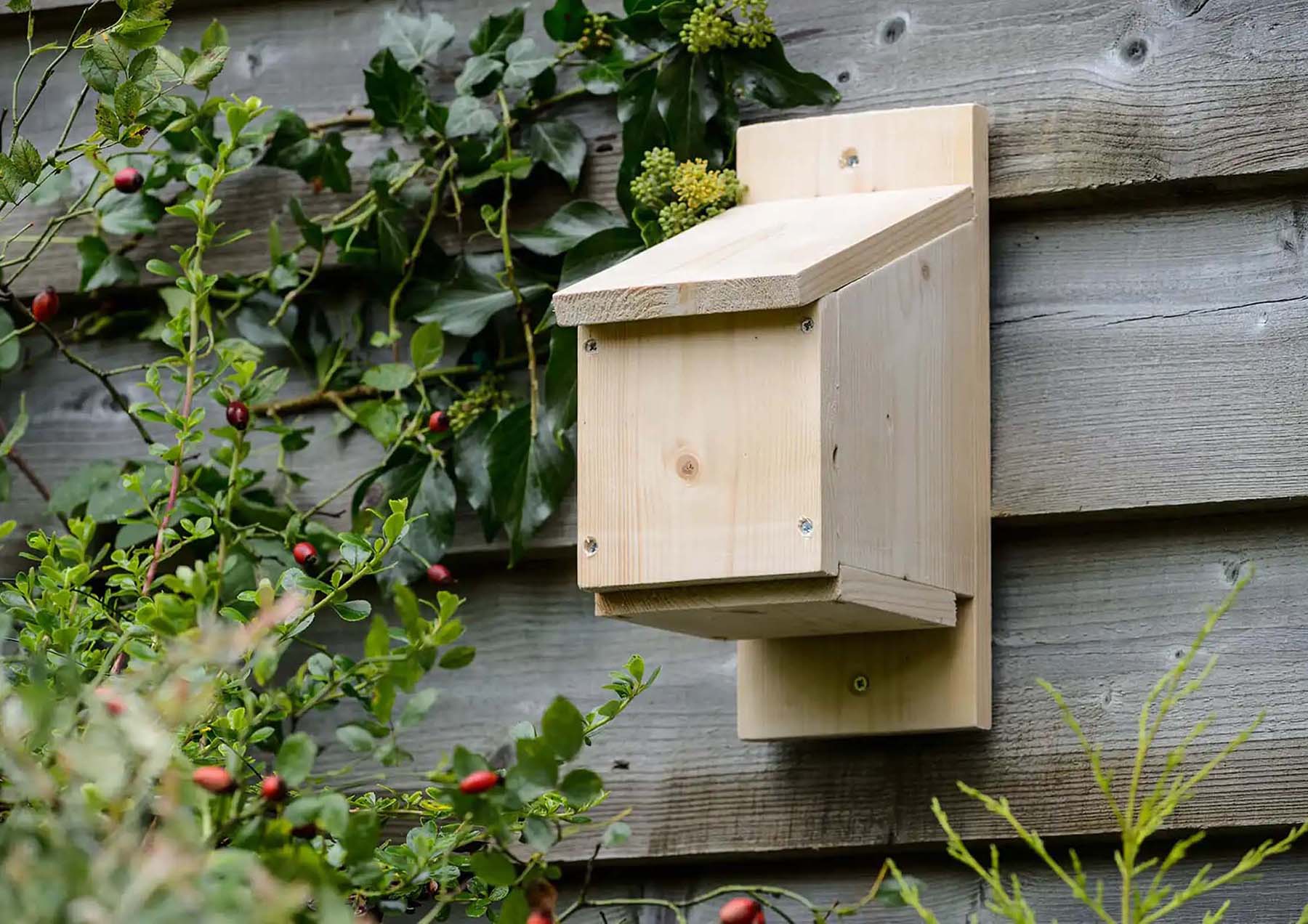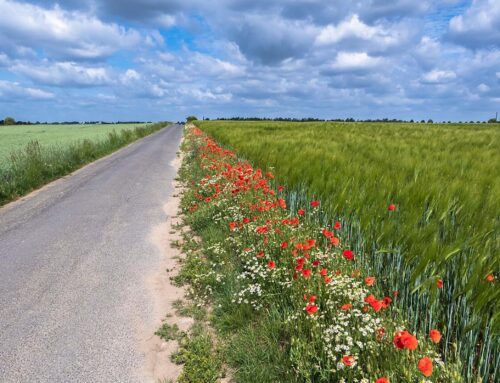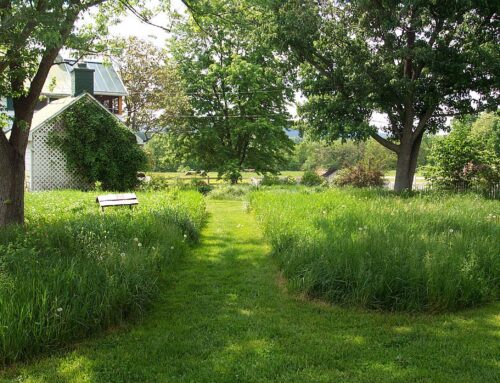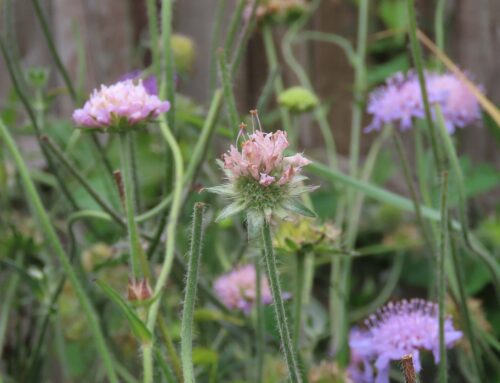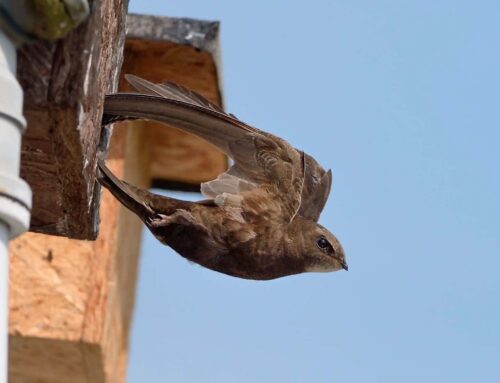How to Support Bats
Bats are important to our ecosystems. For example, some plants depend on bats for pollination and the spreading of their seeds. Bats can also provide a natural form of pest control since their food sources are mostly insects including mosquitoes. Bats, like hedgehogs, are also referred to as an ‘indicator species’ which means they’re like a barometer for the health of our local environment. If bats are thriving, most likely their habitats and food sources will be too. While sick or declining bat populations might indicate dwindling insects or destroyed and lost habitats.
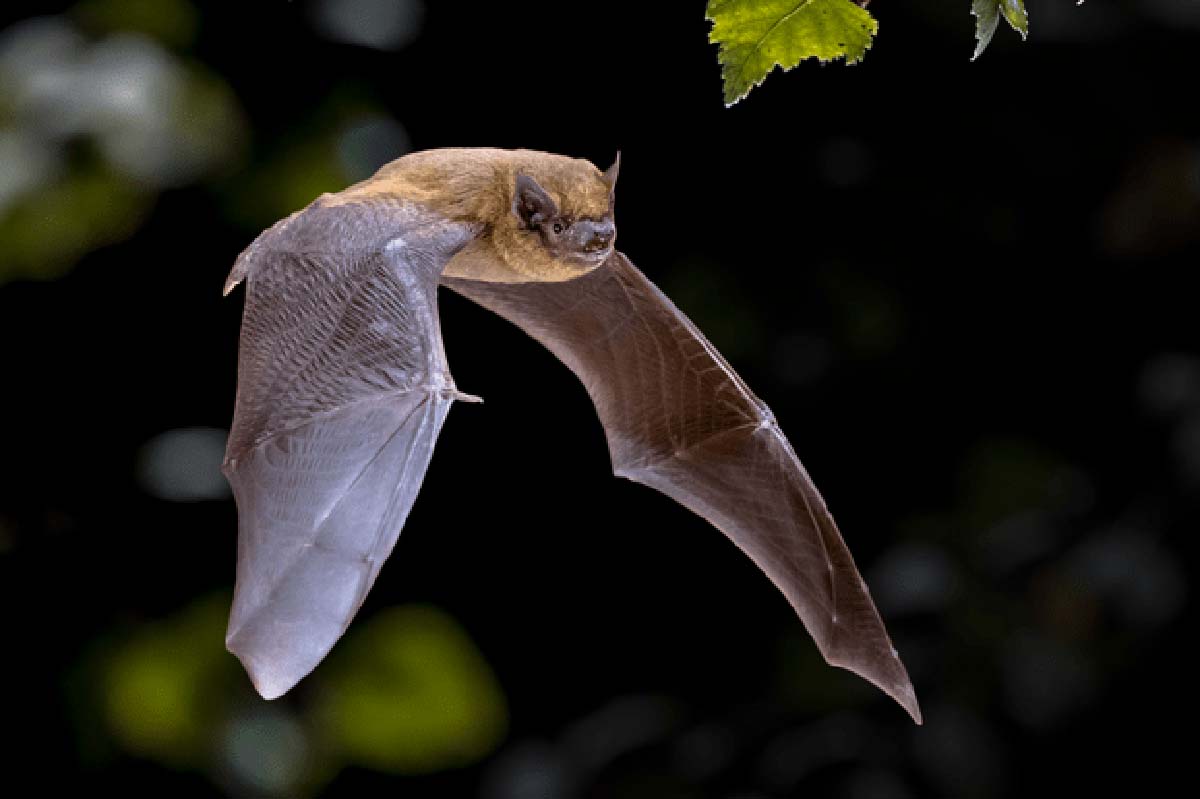
Our gardens can provide crucial shelter and habitat to our native bat population! The UK is home to 18 different species of bats and all of them are protected by law.
Bats feast on large quantities of insects, so a garden that’s insect friendly will also be good for bats. Growing a lot of different pollinator friendly plants and flowers provides a vital food source for insects and pollinators (see also our Wildflowers post link) which in turn provide a food source for bats.
If you plant flowers which release their scent in the evening you can attract moths into your garden which in turn will attract bats to feed on the insects.
Follow this link for a list of night flowering species to plant.
You can also build and install a bat box in your garden to offer roosting space for your local bats. See this webpage and illustration by the Kent Wildlife Trust for a guide on how to build your own bat box!
Bat / Photo by Getty via Countryfile Magazine www.countryfile.com/wildlife/mammals/guide-to-britains-bats-species-facts-identification. Bat Box / photo via Gardener’s World www.gardenersworld.com/how-to/diy/how-to-make-a-bat-box/
